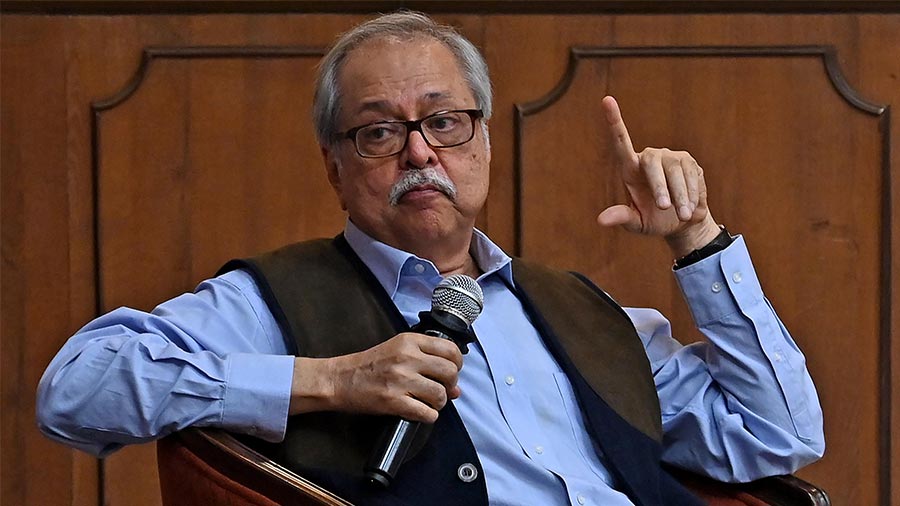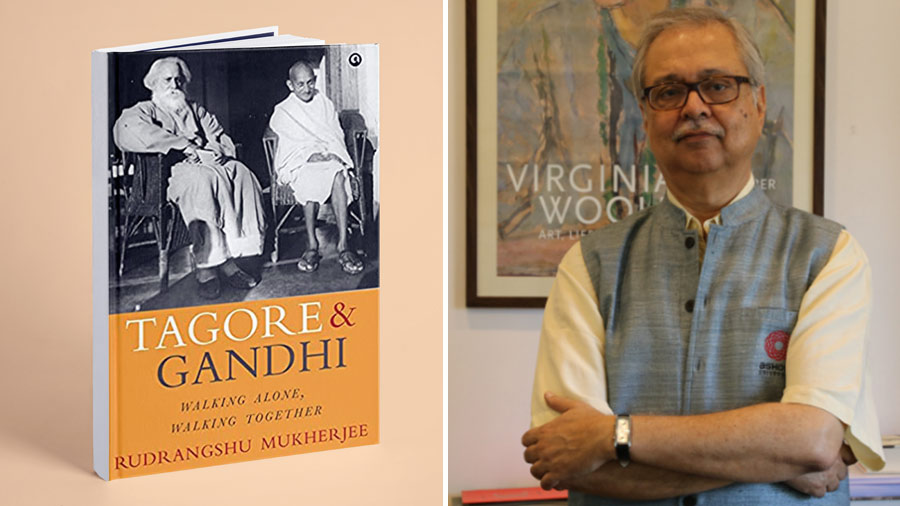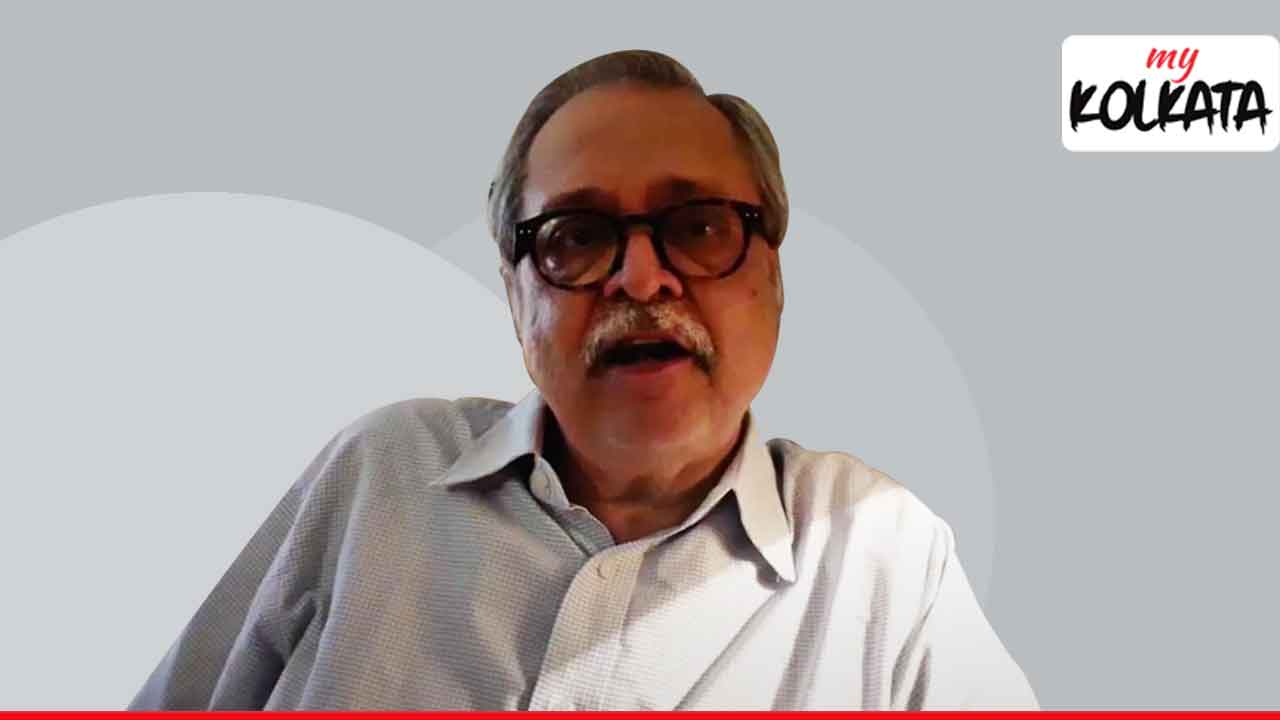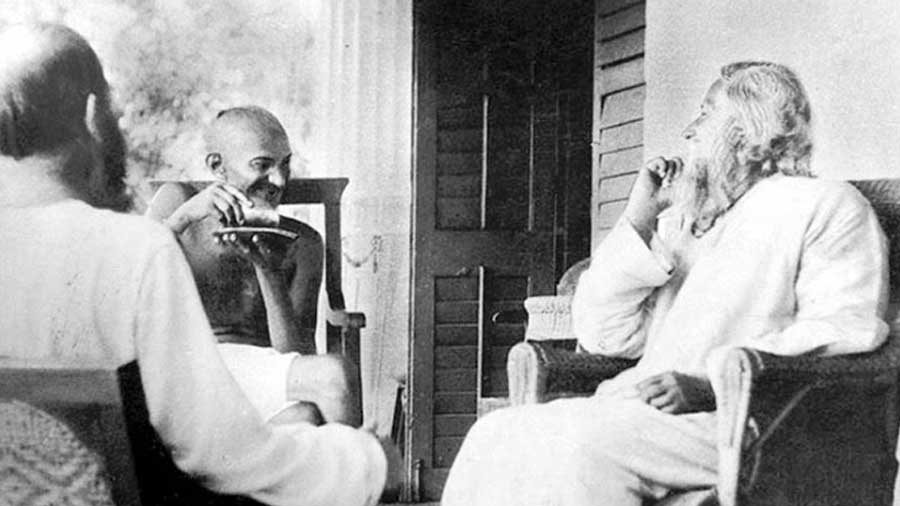Historian Rudrangshu Mukherjee’s in-depth look at the deep bond between Mahatma Gandhi and Rabindranath Tagore, Tagore & Gandhi: Walking Alone, Walking Together (Aleph Book Company), has won the PFC-VoW Book Award in the English Non-Fiction category.
Instituted by the Power Finance Corporation and the Valley of Words, International Literature and Art Festival the prize is in its sixth edition this year. Eight winners under eight categories ranging from fiction, non-fiction, children’s literature, translations in Hindi and English are awarded.
A well-known academic, author and historian, Mukherjee is currently the chancellor of Ashoka University. He was earlier editor of the editorial pages of The Telegraph.
A professor of history, Mukherjee has taught in various reputable institutions, including University of Calcutta, University of Manchester, Princeton University, and University of California.
In his latest book, Mukherjee analyses in detail the relation, similarities and differences in the principles of two iconic Indians. Tagore & Gandhi: Walking Alone, Walking Together reflects on how their individual beliefs shaped the nation as we know today. While Gandhi sought Tagore’s blessings, Tagore in return considered Gandhi as a unifying force in troubled times. “Mahatma ji” and “Gurudev” wrote several letters to each other.

A well-known academic, author and historian, Mukherjee is currently the chancellor of Ashoka University. He was earlier editor of the editorial pages of The Telegraph Amit Datta
In an earlier interview with My Kolkata, Mukherjee had cited an exchange of letters between the two. “The Poet (Tagore) is an inventor. He creates, destroys, and recreates. I’m an explorer, and having discovered a thing, I must cling to it,” Gandhi wrote in 1925.
Four years later, Tagore responded in his inimitable way: “Mahatma ji is the prophet of tapasya, and I’m the poet of anand.”
Their spiritual side is summed up by these two statements, according to Mukherjee.
Both Tagore and Gandhi worked in their own ways to build a better tomorrow for a burning country.
“The fundamental thing that Gandhi and Tagore agreed upon was their idea of swaraj. Swaraj didn’t just mean political independence, but something more profound, which would liberate the lives of every single individual by making them independent of institutions,” Mukherjee told My Kolkata in the interview.
The jury for the award selected the eight winners from over 400 nominations made by 35-plus publishing houses.
‘’The selection of the books involves a three-stage process, and is indeed a tough call as the quality of submissions becomes more competitive each year,’’ said Sanjeev Chopra, director of International Literature and Art Festival.
The jury for 2022 included Ishtiaq Ahmed, political scientist and author, for English Non-Fiction; Surekha Dangwal, vice-chancellor of Doon University, for English Fiction; author Menaka Raman for writings for young adults; children’s author Paro Anand for writings for children; journalist, author, translator Ranjit Biswas for translations into English; author Padmaja Ghorpade for translations into Hindi; and Rajeev Sharma for Hindi non-fiction.


